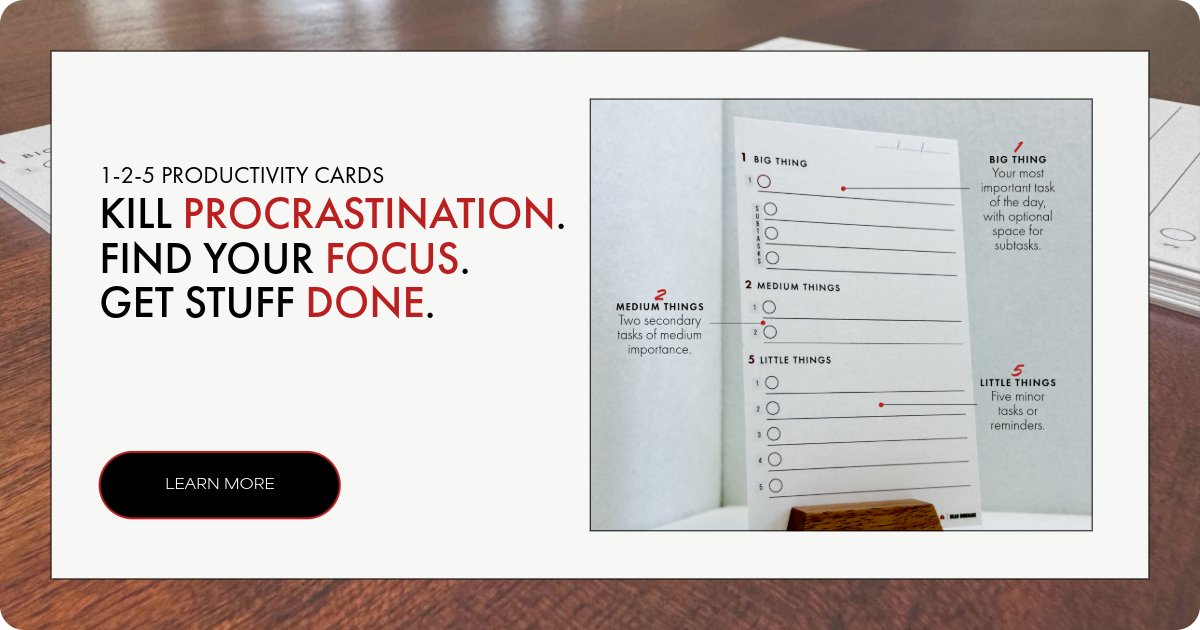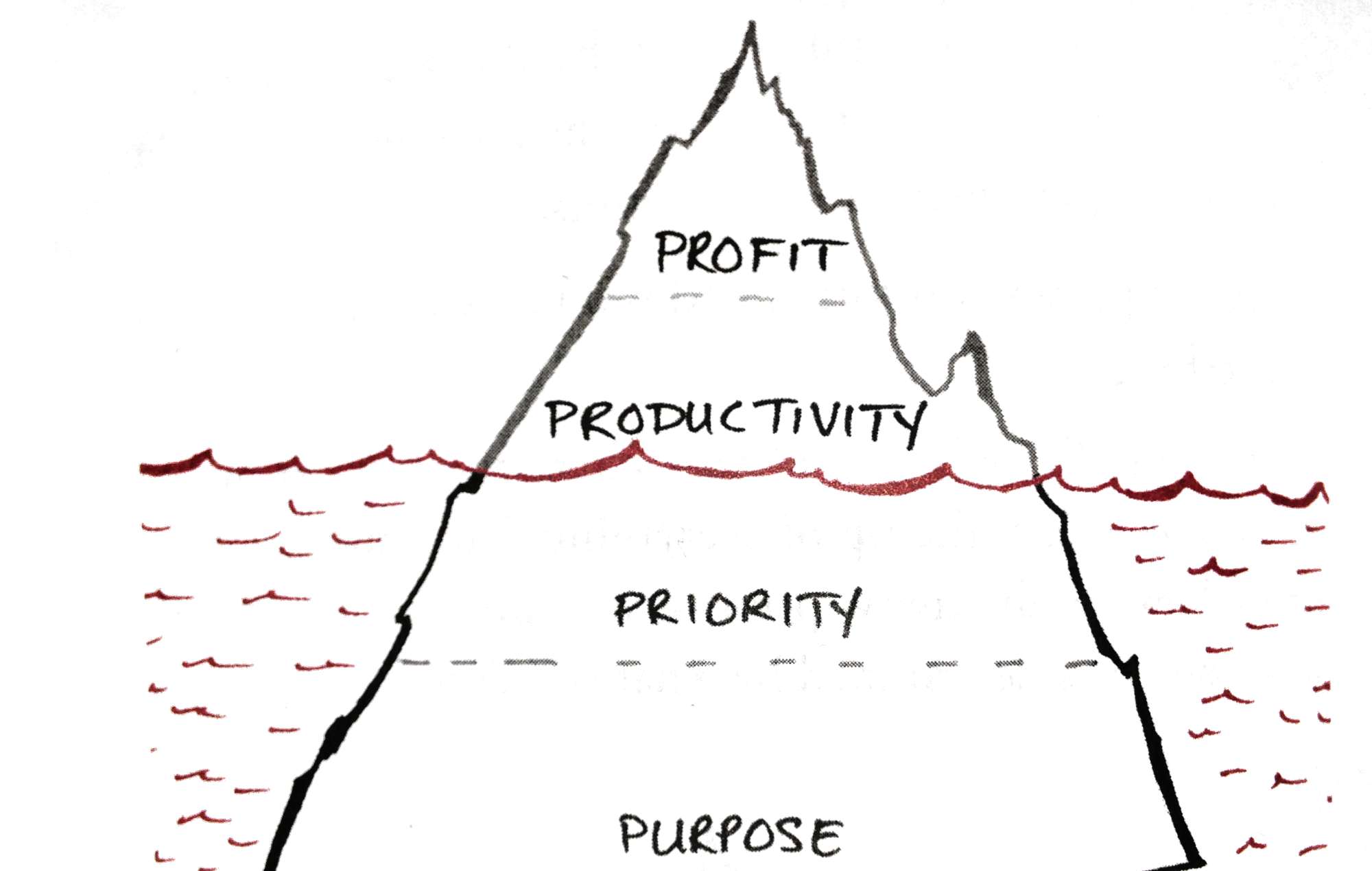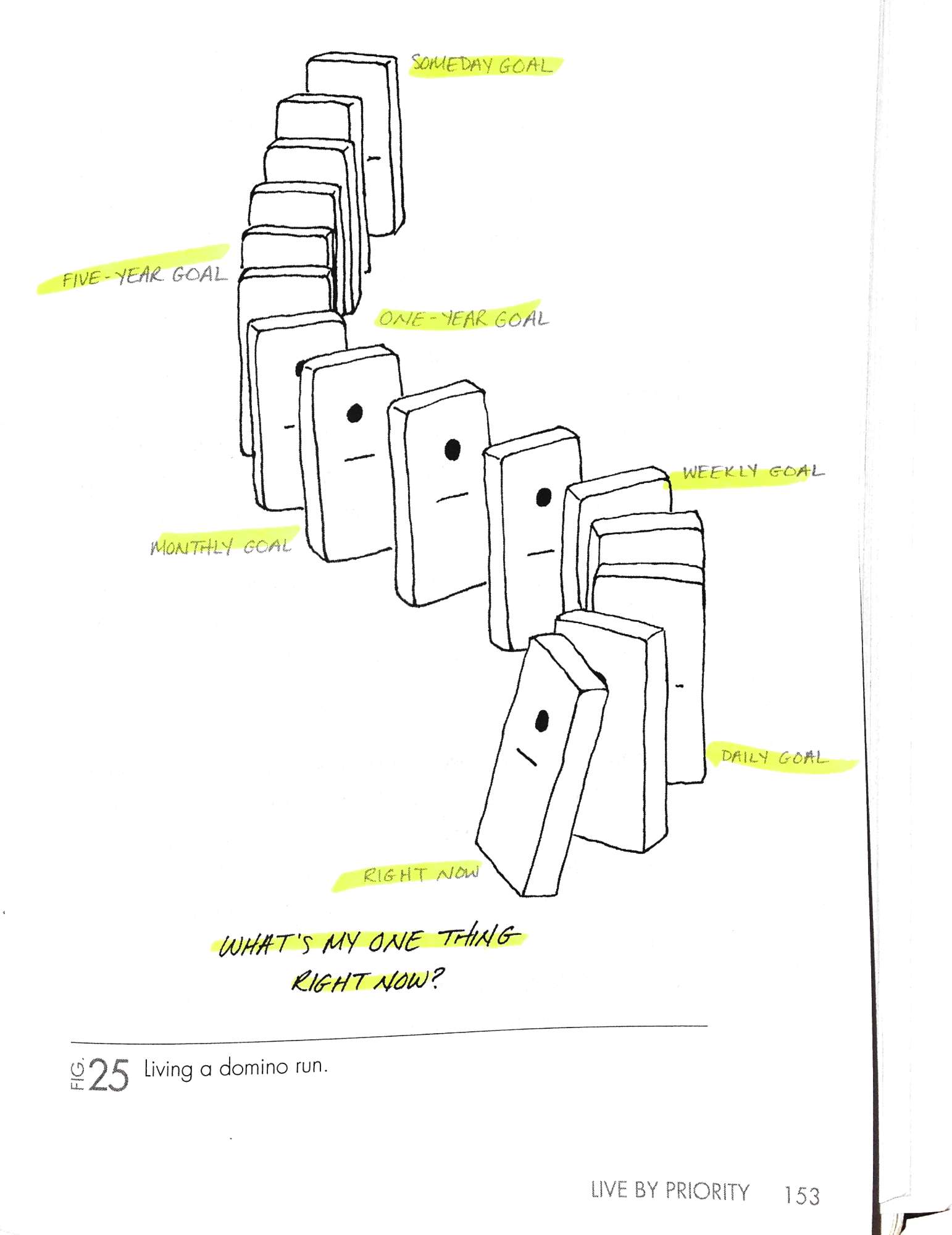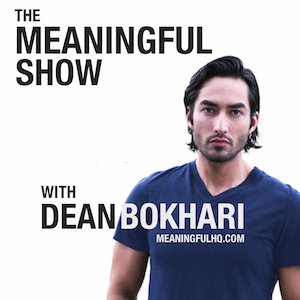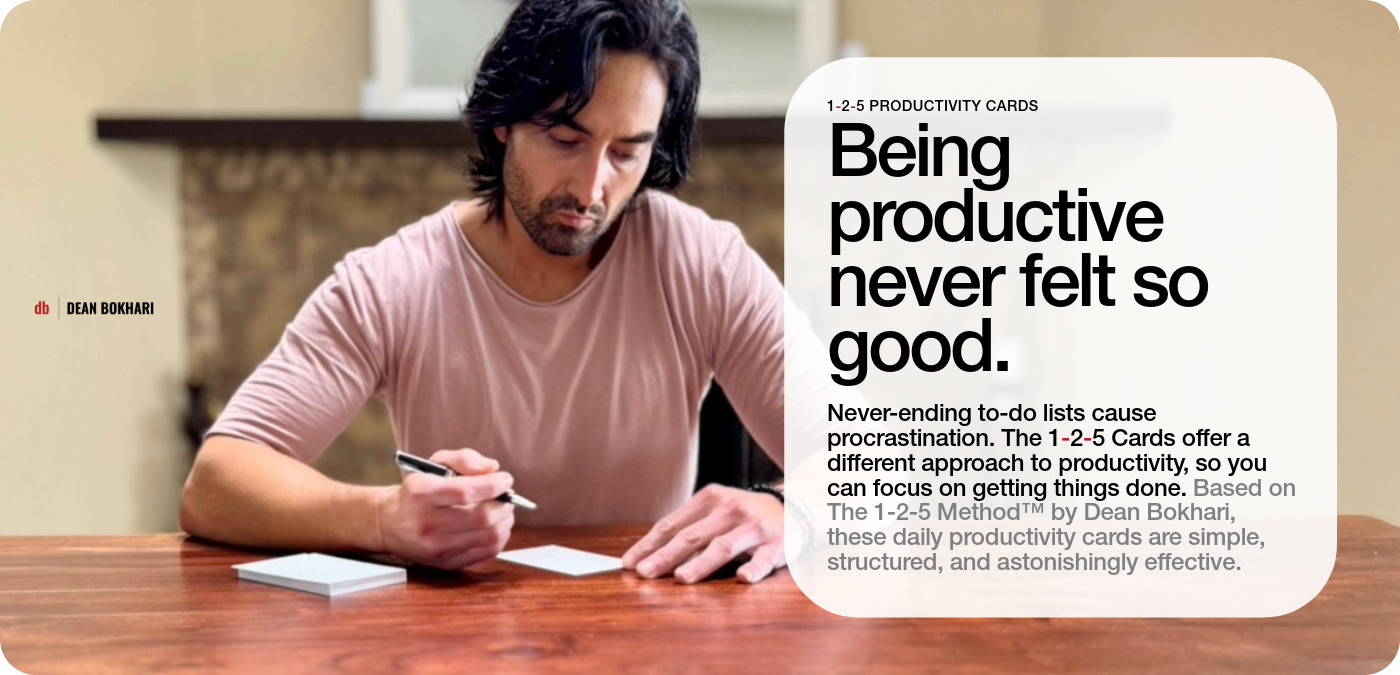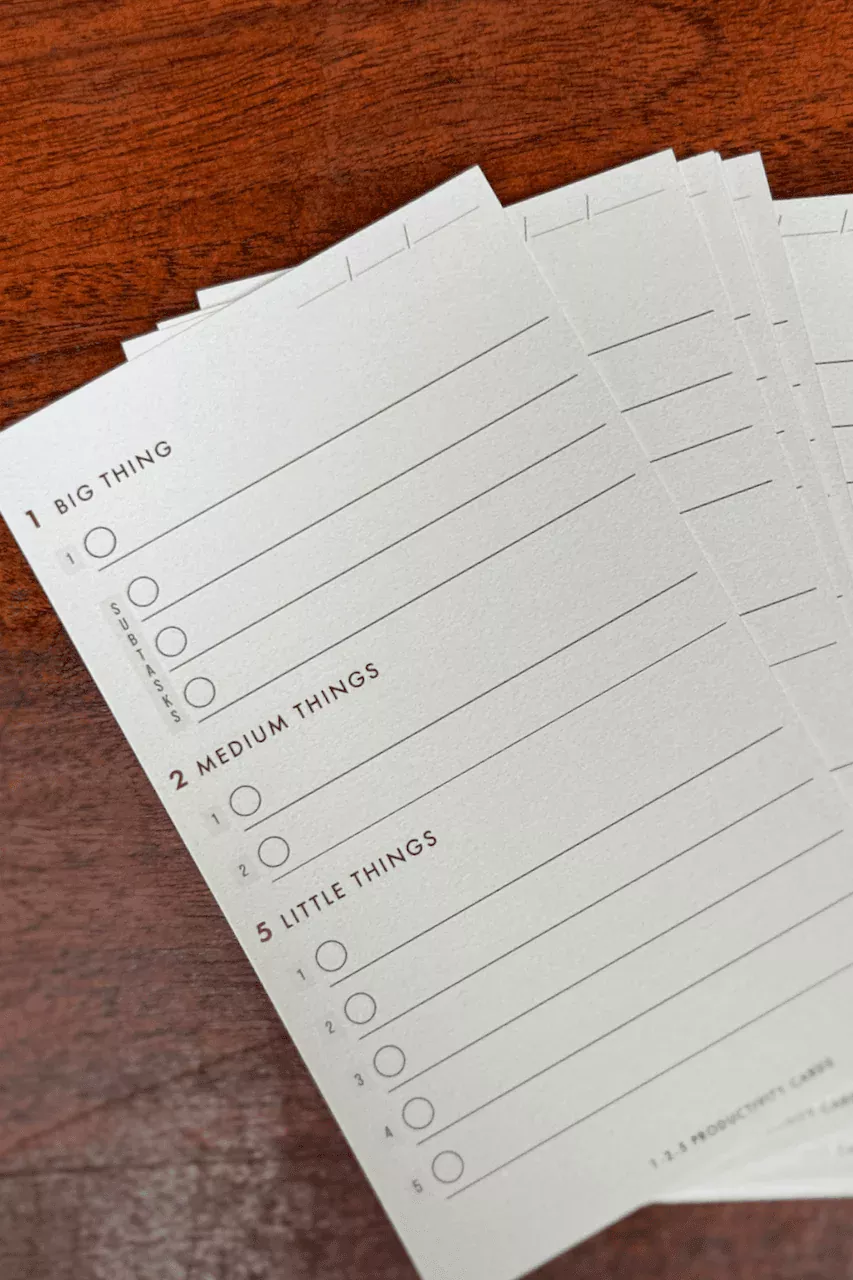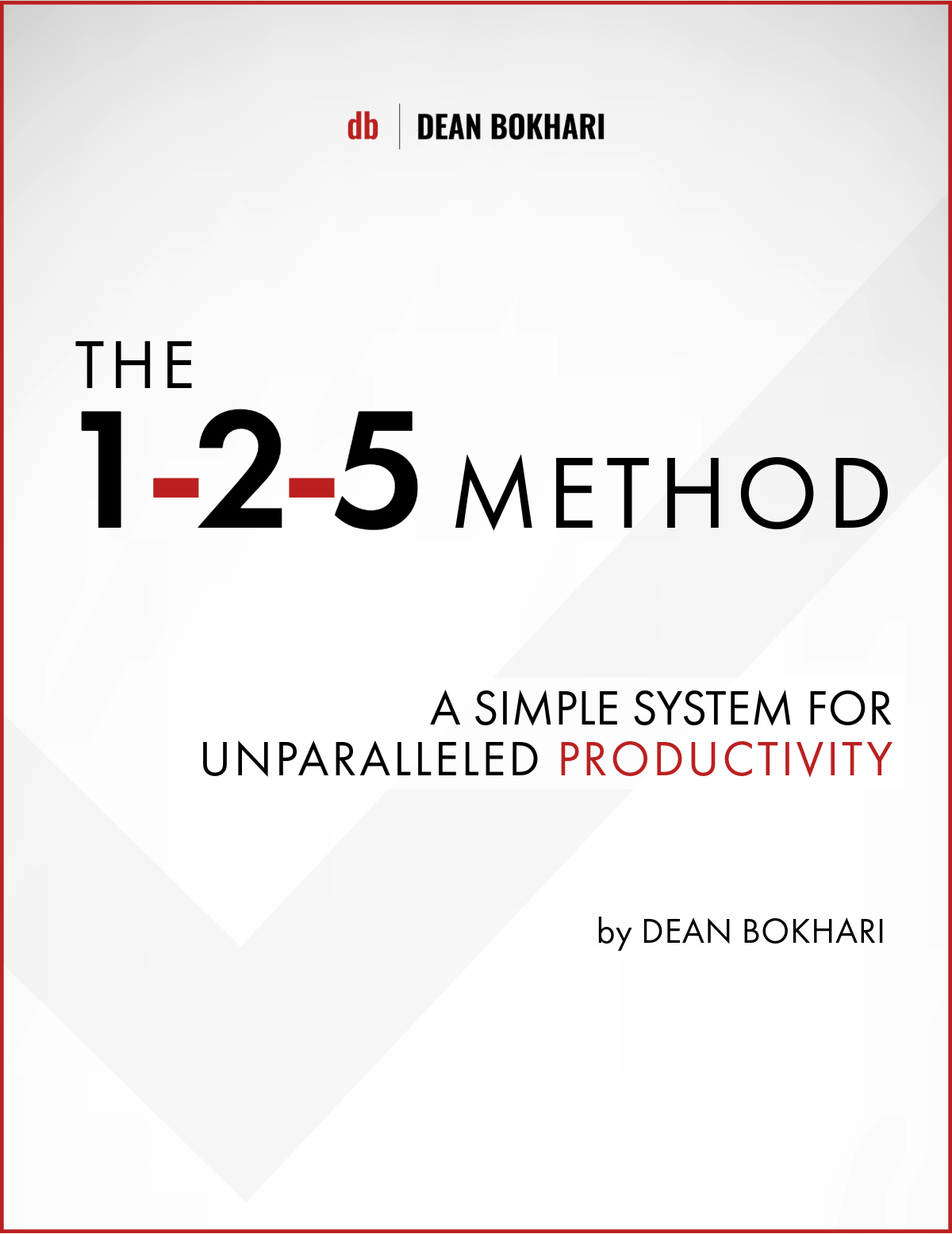The ONE Thing - Book Summary
The ONE Thing : The Surprisingly Simple Truth Behind Extraordinary Results
Crucial quotes
“Success is sequential, not simultaneous”
“Focus is a matter of deciding what things you’re NOT going to do.”
“If you chase two rabbits, you will not catch either one.”
Summary-in-a-Sentence:
Think BIG, but focus on ONE specific thing at a time—when you stop chasing "all the things," you can focus on the most important thing. Share this on X
Big ideas:
- The Focusing Question
- Use The 80/20 Principle (then go deeper)
- Figure out what's most important + give it your undivided attention
- A small dose of discipline develops into a long-lasting habit
- Life is a question
- Iceberg-ing and living by priority
- Goal setting to the now
- Time blocking, mastery, and being accountable
- the four thieves of productivity
- It's about the journey
- No regrets
No time to read this book summary? Scroll to the bottom of this page for a short video summary.
Start with "The Focusing Question."
“What’s the ONE Thing you can do such that by doing it everything else will be easier or unnecessary?”
You’ll want to write that down… because the whole entire book is based around that single question, and the power of organizing every area of your life around ONE Thing (per area).
The Domino Effect
The key to success is figuring out your ONE most important thing in your business/career/life over the long-run.
Think of this as your “someday” goal.
Once you’ve figured that out, you need to identify how many dominoes you need to line up - and then knock down - in order to achieve it. Simple right? … actually, yeah. It is. But just because it’s simple doesn’t mean it’s easy.
The ONE Thing In Action
American businessman Bill Gates is a great example of The ONE Thing lifestyle in action.
- Bill’s ONE passion in high school was computers.
- This led him to develop ONE skill, computer programming.
- In high school, he got ONE job in the computer programing field.
- Which led to him eventually starting ONE company - Microsoft.
- Bill’s company, Microsoft focussed on ONE thing -- the development and sale of BASIC interpreters for the Altair 8800,
- which eventually made Bill the ONE richest man in the world for 15 years in a row.
- After Bill retired from Microsoft, he and his wife Melinda formed ONE foundation that focused on ONE Thing: to tackle some of the world’s “really tough problems” like health and education.
- The majority of the foundation’s money went to ONE area, their Global Health Program -- which had ONE goal: the use science and technology to save lives in poor countries…
- To do this, they settled on find a solution to the ONE major cause of death -- infectious disease...
- The ONE solution they came up with was vaccination. Because it’s the ONE most impactful thing they can put their money towards to solve their ONE ultimate focus: to tackle some of the world’s “really tough problems.” (See how it all ties together?)
Use The 80/20 Principle.
(then go even deeper and narrower)
“...As fast as we were growing, we were still not acknowledged by the top people in our industry. I challenged our group to brainstorm 100 ways to turn this situation around. It took us all day to come up with the list. The next morning, we narrowed the list down to ten ideas, and from there we chose just one big idea. The one that we decided on was that I would write a book on how to become an elite performer in our industry. It worked. Eight years later that one book had not only become a national bestseller, but also had morphed into a series of books with total sales of over a million copies. In an industry of about a million people, one thing changed our image forever.”
In case you’re not familiar with Gary Keller (author of this book), he’s the founder of Keller-Williams Real Estate. And the quote above is an example of how he dug into the 80/20 Principle to take Keller-Williams to the top of their industry. Keller tells us we don’t need a To-Do List, we need a Success List -- a list purposely designed around your highest leverage activities… how do you find your highest leverage activities? By using the good ol’ 80/20 principle.
How The 80/20 Principle Works
If you haven’t heard of the 80/20 principle (aka Pareto’s Principle), it’s pretty simple: the 80/20 principle says that the MINORITY of your effort leads to the MAJORITY of your results…
- 20% of your customers usually account for 80% of your profits.
- 20% of your investments usually account for 80% of your returns.
- 20% of your habits usually result in 80% of your success.
It’s not necessarily about the exact numbers (80%; 20%) as much as it’s about the simple truth behind them, which is this: a SMALL percentage of what you do accounts for a LARGE percentage of the results you experience.
So what are those handful of things that you can extract from your to-do list that would have the BIGGEST impact on your results? Figure out those high-leverage activities, and you’ve just turned your to-do list into a success list.
And once you’re done doing that, Keller recommends that you take your success list and whittle that down even further - taking the 20% of the 20% of the 20% until you’ve gotten it down to the vital few.
*Note: check out The 80/20 Principle by Richard Koch for a deeper dive on this rule
Identify What's Most Important & Give It Your Undivided Attention.
When you stop chasing "all the things,"
— Dean Bokhari (@DeanBokhari) January 23, 2025
you can focus on the most important thing.
Success is sequential, not simultaneous. pic.twitter.com/GJrji3zJwL
“...what’s happening when we’re actually doing two things at once? It’s simple. We’ve separated them. Our brain has channels, and as a result we’re able to process different kinds of data in different parts of our brain. This is why you can walk and talk at the same time. There is no channel interference. But here’s the catch: you’re not really focused on both activities. One is happening in the foreground and the other in the background. If you were trying to talk a passenger through landing a DC-10, you’d stop walking. Likewise, if you were walking across a gorge on a rope bridge, you’d likely stop talking.."
Keller continues, "You can do two things at once, but you can’t focus effectively on two things at once. Even my dog Max knows this. When I get caught up with a basketball game on TV, he gives me a good nudge. Apparently, background scratches can be pretty unsatisfying. Many think that because their body is functioning without their conscious direction, they’re multitasking. This is true, but not the way they mean it. A lot of our physical actions, like breathing, are being directed from a different part of our brain than where focus comes from. As a result, there’s no channel conflict. We’re right when we say something is “front and center” or “top of mind,” because that’s where focus occurs--in the prefrontal cortex. When you focus, it’s like shining a spotlight on what matters. You can actually give attention to two things, but that is what’s called “divided attention.” And make no mistake. Take on two things and your attention gets divided. Take on a third and something gets dropped.”
I love this… How often do we allow other people to pull us away from what we KNOW is most important?
How often do we allow the buzz, the bing, the flash from our cell phone sitting on our desk DIVIDE our attention from what matters most?
Answer: more often than we think.
Shut down your phone or put it on silent — not vibrate — when you’re working.
Turn off the notifications from your email app when you’re working.
Put up a sign of some sort (more on this later) on your desk to prevent people from disrupting your focus.
And develop the right disciplines today, so you can turn them into habits tomorrow…
A Small Dose of Discipline Develops Into a Long-Lasting Habit.
“In any discussion about success, the words “discipline” and “habit” ultimately intersect. Though seperate in meaning, they powerfully connect to form the foundation for achievement — regularly working at something until it regularly works for you. When you discipline yourself, you’re essentially training yourself to act in a specific way. Stay with this long enough and it becomes routine — in other words, a HABIT.”
In other words, when you see people that seem like they’re super DISCIPLINED, what you’re really observing is people who conditioned a handful of HABITS into their lives.
Selecting Disciplines & Turning Them Into Habits
“Success is actually a short race — a sprint fueled by discipline just long enough for habit to kick in and take over.”
So here’s the trick if you want to create a habit — you’ll need to use your will-power/discipline juice in the beginning. This is hard. But keep at it...
According to research, it takes, on average, 66 days to develop a discipline into a habit. This number might vary for you depending on your situation, but remember that it’s not something that you can do over-night. But it is possible. And once you turn a discipline into a habit, you become better at it AND it becomes easier to execute.
Life is a Question.
“You may be asking, “Why focus on a question when what we really crave is an answer?” It’s simple. Answers come from questions, and the QUALITY OF ANY ANSWER IS DIRECTLY DETERMINED BY THE QUALITY OF THE QUESTION. Ask the wrong question, get the wrong answer. Ask the right question, get the right answer. Ask the most powerful question possible, and the answer can be life altering.”
The power of Keller’s Focusing Question — What’s the ONE Thing you can do such that by doing it everything else will be easier or unnecessary? — is that it puts you in a position to take control.
Here’s a 3-part break-down of The Focusing Question: “What’s the ONE Thing I can do / such that by doing it / everything else will be easier or unnecessary?”
- What’s the ONE Thing I can do… This first part of the Focusing Question is about taking action… it’s not the ONE thing you “should do”, or “could do”, or “would do” — but the ONE Thing you CAN do. The word “can” implies action, as opposed to others, which imply intention.
- … such that by doing it… this part of the question lets you know you’re about to get specific. It means that you’re about to take action on something that actually has a purpose.\
- … everything else will be easier or unnecessary? this final part of the Focusing Question is about LEVERAGE. It says that when you do this ONE Thing, everything else you could do to accomplish your goal will now be either doable with less effort or no longer even necessary. For example: hiring an assistant to handle your calls and emails is a levered action that frees up the time you used to put into calls and emails, thus making it easier for you to focus on growing your business.
Crucial Quote: “How we phrase the questions we ask ourselves determines the answers that eventually become our life.”
Iceberging & Living By Priority.
Every
organization wants the two P’s - Productivity and Profit, but most
organizations haven’t got a clue that there are two additional P’s that
come first, and serve as foundation for the second two. Those two P’s
are Purpose and Priority.
Take a look at this drawing of an iceberg:
See how Purpose is the foundation?
Purpose comes first because that’s what the best people and organizations are made of.
After Purpose, comes Priority. You should only have ONE at a time.
Productivity and Profit are the RESULTS of a business/team/organization being run by people who have a Purpose — not because their boss told them to — but because they really give a damn.
And when you have a strong Purpose, you can become clear about your highest Priority.
When you’re clear about those two, you’ll become a more Productive person. And when you become a Productive person, you produce more value in the marketplace. And the only way to produce real and consistent value in the marketplace, is to Prioritize your activities based around your most important goals (yearly, monthly, weekly, and daily). And when you Prioritize based on what’s most important to you — then you’re driven by Purpose.
… And by-golly, when you’ve got this pattern down-pat, you do indeed, begin generating Profit. Cha-ching!
So how do you do all this without killing yourself? I’m glad you asked…
Want the full version of this book summary? Check it out here.
Goal-Setting To The Now.
“By thinking through the filter of Goal Setting to the Now, you set a future goal and then methodically drill down to what you should be doing right now. It can be a little like a Russian matryoshka doll in that your ONE Thing “right now” is nested inside your ONE Thing TODAY, which is nested inside your ONE Thing this WEEK, which is nested inside your ONE Thing this MONTH… it’s how a small thing can actually build up to a big one… You’re lining up your dominoes.“
Here’s how you want to “line up your dominoes” within the context of your professional life (by the way, it’s the same thing for your personal life or any other area of improvement):
SOMEDAY GOAL: what’s the ONE thing I want to do someday?
FIVE-YEAR GOAL: Based on my Someday Goal, what’s the ONE thing I can do in the next 5 years?
ONE-YEAR GOAL: Based on my Five-Year Goal, what’s the ONE thing I can do in this year?
MONTHLY GOAL: Based on my One-Year Goal, what’s the ONE thing I can do this month?
WEEKLY GOAL: Based on my Monthly Goal, what’s the ONE thing I can do this week?
DAILY GOAL: Based on my Weekly Goal, what’s the ONE thing I can do today?
RIGHT NOW: Based on my Daily Goal, what’s the ONE thing I can do right now?
Now all you need to do is knock each domino down until you’ve hit your Someday Goal.
Should keep you pretty busy, eh?
Diggin this? Get hundreds of business book summaries for just $1
Time-Blocking, Mastery, and Being Accountable.
Michelangelo once said, “if the people knew how hard I had to work to gain my mastery, it wouldn’t seem wonderful at all.”
In his book “Mastery”, George Leonard tells a story about Jigoro Kano, the founder of Judo, and how he was so dedicated to the concept of Mastery that when he was on his death bed, he asked his students to bury him in a white belt. Think about that — one of the most accomplished martial artists of his time and beyond, asks to be buried with a white belt to symbolize his new journey in his next life and beyond. THAT’s Mastery. For more on Mastery, checkout the book summary on Leonard’s book.
Go From “E” To “P”
Keller says that most people have an Entrepreneurial “E” mindset, and that in order to be more productive and effective at what we do, we should adopt a Purposeful “P” mindset.
To give you an example of “E” to “P”, imagine you’ve just been asked to go chop some firewood. An “E” would grab an axe and start chopping away. While a “P” would leave the axe behind and look for a chainsaw instead.
Be Accountable
“Accountable people achieve results others can only dream of. When life happens, you can be either the author of your life or the victim of it. Those are your only two choices—accountable or unaccountable.”
I know a lot of folks that are great at blaming others but terrible at taking ownership of their lives. Let’s not be that. Let’s take responsibility for our outcomes. Because when we do that, we put ourselves in control.
Let’s take a super simple example: Let’s say you’re at work, and you've just finished reading this summary of The One Thing. You've decided you’re going to time block your most important one thing and get to work... But then, all of a sudden, somebody comes down the hallway, lingers over your desk, and starts asking you questions that don’t matter. Then they request that you go out on a break with them — what do you do?
Do you tell them “yes” or do you tell them “no”?
Answering “ yes” when you know you should be focusing on your ONE Thing, puts your co-worker in control.
Answering “no” puts you in charge.
Even better, setting up your workspace so that people know not to interrupt you in the first place REALLY puts you in control.
Suggestion: make a sign that says “until I’m done with my ONE Thing, nothing else matters” and post it up so that it’s visible to any potential interrupters. Add whatever else you need to add to ensure they know not to screw with you while you’re working.
Actionable Insights
- People who write their goals down are 39.5% more likely to succeed..
- People who write their goals AND share their progress with people that they’ve chosen to hold them accountable, are 76.7% more likely to achieve them. Wowzers! Double your effectiveness. Share your goals + progress. Do it!!!
- Nugget of wisdom to repeat to self: “I am the author of my destiny.”
The Four Thieves of Productivity (avoid them at all cost.)
“One-half of knowing what you want is knowing what you must give up before you get it.”
- Inability to Say “No”
- Fear of Chaos
- Poor Health Habits
- Environment Doesn’t Support Your Goals
Inability to Say “No”.
As a rule of thumb, Keller recommends that we avoid saying yes to most things unless they’re connect to our ONE Thing. If you’re afraid of saying no to someone because it might hurt their feelings, come up with a way to say it that you’re comfortable with. Here’s Seth Godin on saying no: “you can say no with respect, you can say no promptly, and you can say no with a lead to someone who might say yes. But just saying yes because you can’t bear the short-term pain of saying no is not going to help you do the work.” Love it.
Fear of Chaos.
Shit happens. Messes occur. Wives (and husbands) get angry. These things happen. But it doesn’t mean you should give up on your ONE Thing. Chaos is natural. In fact, the more you focus on your ONE Thing, the more of it you might get. That’s okay. Protect your precious time blocks and remain productive. In time, you’ll learn to deal with the chaos in your own unique way. But don’t let chaos control you. YOU control the chaos… by focusing on your ONE Thing.
Poor Health Habits.
Keller says that “Personal energy mismanagement is a silent thief of productivity” and I couldn’t agree more (checkout the FlashNotes on "The Power of Full Engagement” for a deeper dive on this subject). Your health and your success are intertwined with one another and depend on each to survive and thrive. For maximum energy management and productivity, plan your days include the following:
- 1. Meditate / pray for spiritual energy.
- 2. Eat right, exercise, and sleep sufficiently for physical energy.
- 3. Spend time with friends and family for emotional energy.
- 4. Set goals, plan, and calendar for mental energy.
- Time block your ONE Thing for business energy.
Environment Doesn’t Support Your Goals.
Did you know that if one of your close friends becomes obese, you’re 57% more likely to do the same? Crazy, eh? This is because the people we see and spend time with most tend to set our standards (see: The Law of Averages). Raise your standards and listen to Oprah’s advice: “Surround yourself only with people who are going to lift you higher.”
It's About The Journey.
“...at any moment in time there can be only ONE Thing, and when that ONE Thing is in line with your purpose and sits atop your priorities, it ill be the most productive thing you can do to launch you toward the best you can be. Actions build on action. Habits build on habit. Success builds on success.”“I want you to do something. I want you to close your eyes and imagine your life as big as it can possible be. As big as you have ever dared to dream , and then some. Can you see it? Now, open your eyes and listen to me. Whatever you can see, you have the capacity to move toward. And when what you go for is as vast as you can possibly envision, you’ll be living the biggest life you can possibly live. Living large is that simple.”
Did you do what Keller said above?
If not -- what are you waiting for? Go for it! I can wait…
When I did the little exercise above, I saw myself hosting an internationally syndicated talk show (sort of like Oprah) but with an empowering twist (sort of like a Tony Robbins seminar)...
My vision for the show is that it enables viewers to watch and learn from my guests -- who are the most inspiring, passionate, purpose-driven people on the planet (authors/entrepreneurs/entertainers/philanthropists/etc.)
There are no boundaries as to who can come on my show and who cannot. The only requirements are that they’re willing to talk about why they do what they do, and how they went from being “ordinary” people to “extraordinary [insert profession here]”.
In short, I’m all about inspiring people to inspire themselves. Coupled with my love for teaching, coaching, and connecting with people -- the biggest life I can possibly imagine (global talk show) brings all of these elements together in a way that allows me to bring massive value to the world and have the greatest impact on the highest number of people possible…
My journey is built on making the aforementioned dream a reality. And in my mind, it already is. What about yours?
Your Journey toward extraordinary results will be built above all else on faith
“It’s only when you have faith in your purpose and priorities that you’ll seek out your ONE Thing. And once certain you know it, you’ll have the personal power necessary to push you through any hesitancy to do it. Faith ultimately leads to action, and when we take action we avoid the very thing that could undermine or undo everything we’ve worked for--regret.”
No Regrets.
Keller mentions an excerpt from a book written by Bronnie Ware titled “The Top Five Regrets of the Dying”. Without further ado, here they are:
- “I wish that I’d let myself be happier”
- “I wish I’d stayed in touch with my friends”
- “I wish I’d had the courage to express my feelings”
- “I wish I hadn’t worked so hard”
- “I wish I’d had the courage to live a life true to myself, not the life others expected of me.”
Print that out and put it on your desk.
Closing Notes.
As we close out this book summary, I'm going to leave you with one final insight to keep in mind and remember.
George Bernard Shaw once wrote:
“Life isn’t about finding yourself. Life is about creating yourself.”
... So, are you looking in every direction trying to find things to do in your life?
... Or have you gotten down to the business of deliberately creating the life you deserve?
— Dean Bokhari
Watch this summary on FlashNotesTV
Buy the book
|
Get the original version |
Get the book summary |
LIVE LIKE YOU GIVE A DAMN,
Dean Bokhari
- If you find the podcast helpful, please rate + review it on Apple Podcasts »
- Got a Self-Improvement question you'd like me to cover? Submit it here »
"Dean Bokhari's Meaningful Show is the Self-Improvement Podcast I've been
waiting for. It's actionable, inspiring, and BS-Free." —Brett Silo
✨ New Series: How to Become an Early Riser
- Discover key methods to make early rising a habit
- How to wake up early + energized every morning
- Morning routines for health + success
Free self-development courses
👇
Tap on any of the courses below to start learning how to:
- boost your productivity (with GTD),
- get focused (with Deep Work),
- or learn the art of influencing others (with the How to Win Friends & Influence People course.)
All for free.
👇
Free life guides
👇
Best-selling Self-development courses by Dean Bokhari
Kill procrastination.
|
Get stuff done.
|
Get motivated.
|
Connect with anyone.
|
freshly pressed:
Top Audiobooks narrated by Dean Bokhari on audible | |
Book summaries
- The Power of Habit by Charles Duhigg
- 12 Rules for Life by Jordan B. Peterson
- Presence by Amy Cuddy
- Leaders Eat Last by Simon Sinek
- The ONE Thing by Gary Keller, Jay Pasan
- Deep Work by Cal Newport
